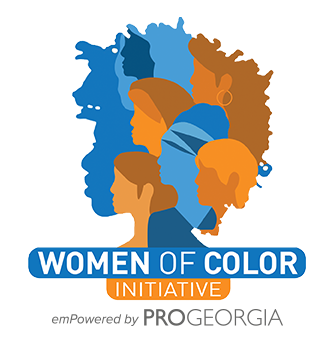Self Care, Mental Health, and Emotional Well-being in the age of COVID-19
by Yemi Farinu
By now you’re probably aware of the current public health crisis plaguing the globe. The Coronavirus aka COVID-19 has infected 2,700,000 individuals and sadly taken the lives of over 125,000 people specifically in the U.S. These numbers are continuing to climb as our government is ill prepared and our policy makers are failing to make substantial decisions to stop the spread of COVID-19. Social distancing was enacted to prevent the transmission of the virus. Many nonessential businesses, schools, and public gathering spaces across the nation shut down for months and transitioned to virtual approaches in order to resume operations. However, numerous other businesses were not so lucky and were forced to close their doors for good leaving countless employees laid off. The socio-economic impact of COVID-19 has been extremely severe for marginalized folks such as communities of color where disposable income, flexible work schedules, paid leave, and the ability to do paid work from home are lacking. As a result of the pandemic, families have been left with decreased financial stability and are forced to choose between paying for bills or food. Not to mention that while any and everyone can contract COVID-19 there are particular groups being disproportionately affected; specifically, communities of color. Racial/ethnic inequalities in health as well as healthcare access have had a longstanding position in the U.S. society and the current pandemic only highlights this systemic issue. Data from the Centers for Disease Control and Prevention demonstrates that Black/African Americans, Hispanics, Latinos, and American Indians/Alaska Natives have higher rates of mortality and hospitalization caused by COVID-19 compared to non-Hispanic white persons. Our communities are tired, stressed and in need.
The Women of Color Initiative (WoCI) centers women of color in policy-making and leadership to strengthen all of Georgia. The organization strives to support the self-determination and leadership of women of color in their development of statewide policy agendas. In light of COVID-19 and it’s substantial impact on communities of color, WoCI held a community forum titled COVID 19 & the Aftermath: Strategies for Coping and Creating Lasting Change on May 16th, 2020. The forum began with an infamous quote by Audre Lorde: “Caring for myself is not self-indulgence, it is self-preservation, and that is an act of political warfare.” This message beautifully highlights how coming together to lift up, honor, and hold space for ourselves is a radical act of self love. Audre Lorde’s quote reminds us that we are NOT disposable and that acting in our own best interest helps us protect ourselves and ensure the survival of our communities. During the forum, panelists on the frontlines dealing with COVID-19 in Georgia presented narratives, experiences, truths, stories and perspectives concerning how they and their communities are faring in these unprecedented times. It is safe to say that thousands of lives have been upended and that there have been significant changes to our daily routines that are out of our control. While everything is uncertain, scary, different, and anxiety inducing it is vital that we look after our well-being. So we ask you: How are you taking care of yourself?
Communities of color already suffer from higher levels of chronic stress due to discrimination, violence, systemic racism and various other social inequalities. Additionally, due to the pandemic we are now facing many new realities: working from home, unemployment, home-schooling, and lack of social contact with other family members, friends and colleagues. All of these life changes can have significant effects on an individual's mental and emotional health. Recognizing signs of distress and developing healthy ways of coping is extremely important for self-care. Here are some warning signs to look out for:
Trouble focusing on daily activities
Feelings of extreme sadness, or irritability
Loss of interest in others
Excessive fear, worry, or anxiety
Problems with concentration, memory or speech
Confused thinking
Dramatic changes in sleeping habits
Strange thoughts (delusions)
Suicidal thoughts
Substance use
Feeling disconnected
Peculiar behavior
Changes in eating habits
Overwhelming fatigue
It is normal to feel overwhelmed, especially during this time. We cannot stress enough the importance of taking care of yourself! Here are a few self-care tips to help you cope in the age of COVID-19:
Set and maintain a routine at home
Eat healthy meals
Drink plenty of water
Participate in exercise
Focus on things you can control
Listen to music or read books
Take a break from news and social media
Lean on your personal beliefs and faith for support
Start a journal to write out how you feel
Take a walk outdoors
Call or video-chat a loved one to catch up
Listen to a podcast on a subject that interests you
Declutter your space
Indulge in guided meditation on Youtube
Find a mantra that brings you comfort
Name at least one thing to feel positive or grateful about every day
If you feel like you or a loved one are experiencing insurmountable emotional stress during this pandemic, please do not hesitate to reach out for immediate help. Below are some useful resources!
Hotlines
The National Suicide Prevention Lifeline
1-800-273-TALK
The National Crisis Text Line
741741
Suicide & Crisis Hotline
1-800-999-9999
The Trevor Project - confidential suicide hotline for LGBTQ community
1-866-488-7386
African American and Black Communities
BLKHLTH
The Association of Black Psychologists
http://www.abpsi.org/index.html
Therapy For Black Girls
https://therapyforblackgirls.com/
Hispanic/Latinx Communities
Therapy for Latinx
https://www.therapyforlatinx.com/
Latinx Therapy
National Alliance for Hispanic Health
https://www.healthyamericas.org/
Asian/ Pacific Islander Communities
Asian American Psychological Association (AAPA)
Asian Community Health Services Directory
http://spiral.tufts.edu/health_centers.shtml
The National Asian American Pacific Islander Mental Health Association (NAAPIMHA)
Alaska Native and Indigenous Communities
WERNative
One Sky Center
Indigenous Story Studio

